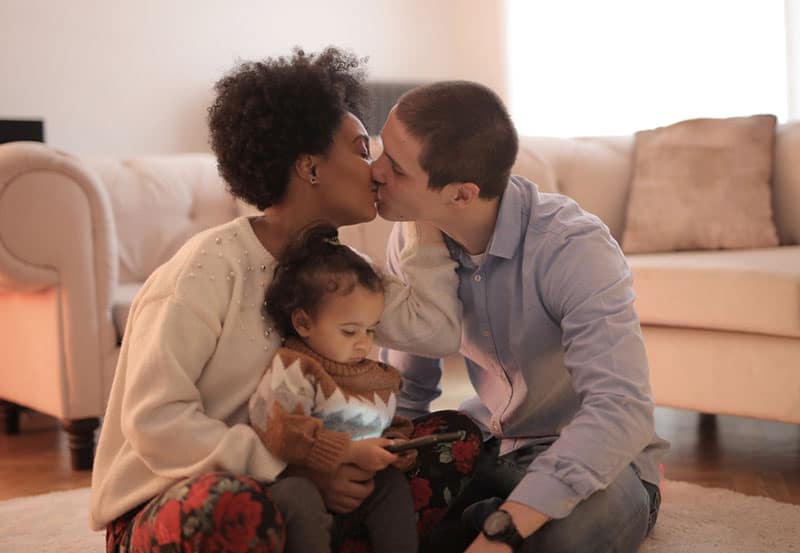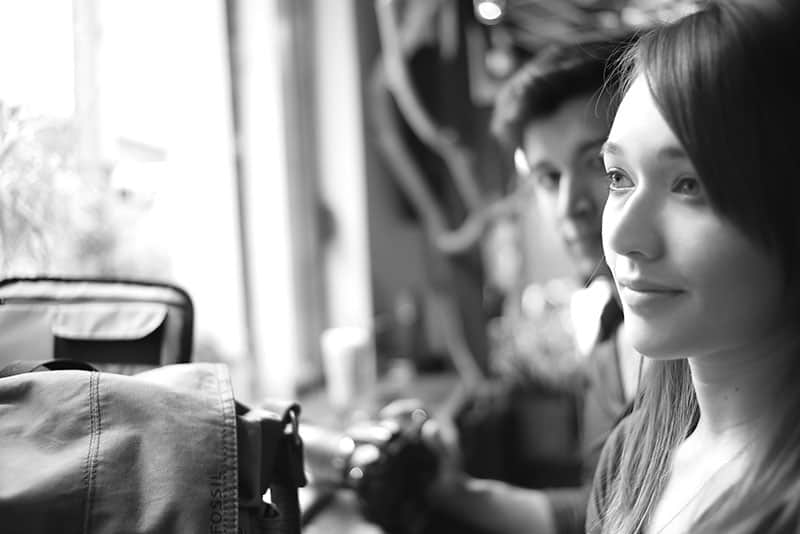O que significa PDA e a sua importância numa relação
O significado de PDA

De certeza que já ouviu falar do termo PDA e não pode deixar de se questionar: "O que é que significa PDA?"
Então, o que é que significa PDA? A definição é bastante simples - é um acrónimo para demonstrações públicas de afeto.
De acordo com o Acronymfinder.com, além desta definição, PDA pode significar uma série de outras coisas, como
– personal digital assistant (um dispositivo eletrónico semelhante a um computador de mão),
– personal data assistant,
– patent ductus arteriosus (ou persistência do canal arterial—an opening between the two blood vessels leading from the heart),
– personal database,
– posterior descending artery (um tipo de artéria),

– preliminary aprovação do projeto,
– Power Distribution Assembly,
– property damage accident, Progressivo Aliança Democrática,
– Procurement Agência de Defesa, Departamento de Agricultura da Pensilvânia,
– Program for Deaf Adults (situated in Nova Iorque),
– Progressive Democrats of America,
– Public Disturbance Agency,
– pathological demand avoidance (uma condição médica que faz parte do espetro do autismo e se caracteriza por by a patient’s need to avoid all types of demands),
– Preliminary Damage Assessment, desenvolvimento profissional atividade,
– personal organizer, autómatos push-down (um ramo da ciência teórica da computação),
– panic disorder with agoraphobia and so on.
O que significa PDA numa relação?

However, I’m sure you’re not interested in any of these meanings and nor do you want to know more about them.
In fact, you’re concerned with what does PDA mean in dating, what is its importance and how it can impact your romance.
Bem, PDA significa demonstração pública de afeto.
Of course, these public displays of affection we’re talking about here don’t include having intercourse with your partner in the middle of the street just because you’re turned on at that moment and because you feel like it.
Moreover, they don’t include any type of sex or petting; it is an acronym for mostrar afeto e para os toques físicos mais leves, socialmente aceitáveis em público, como beijos, abraços, carícias, apertos de mão e outras formas de toque subtil.
Compatibilidade com PDA

Now that you’ve figured out what does PDA stands for, it’s time to deepen your knowledge regarding this subject.
What is important is for you and your partner to have PDA compatibility. It means that you two have a similar opinion on how much PDA is enough and where the line is that you shouldn’t cross.
O mesmo se aplica à necessidade de contacto em geral.
There are some people who don’t crave their other half’s presence all the time and they don’t have the desire to constantly touch them but it doesn’t mean that they don’t love their significant other enough or that they don’t find them attractive.
Por outro lado, há quem aproveite todas as oportunidades que tem para beijar, acariciar ou de mãos dadas com o seu ente querido.
So, the problem occurs when two people don’t perceive the importance of physical touch outside of the bedroom in the same manner.

It’s the same with PDA compatibility. When you’re publicly displaying your love and affection, it is important for both parties to feel completely comfortable while doing so.
Therefore, you can’t be all over your partner and enjoy the fact that you have a chance to touch them while they’re embarrassed and are obsessed with what other people might say.
It goes the other way around, as well; it is not cool to never respond to your significant other’s displays of affection just because that is not something that fulfills you despite knowing that your rejection will make them feel emotionally neglected.
Sabendo tudo isto, percebe a importância de estar numa relação compatível com PDA.
Of course, something like this shouldn’t be a dealbreaker when it comes to starting a new romance but your differences in this field can certainly bring you more troubles in the future than you might think.
4 Vantagens do PDA

São inúmeros os efeitos benéficos que as demonstrações públicas de afeto, como dar as mãos, beijar ou abraçar, têm em qualquer relação romântica.
Here are 4 reasons why it’s good for you and why you should practice it as often as possible.
1. Torna a vossa ligação mais forte

Apesar de os toques físicos ligeiros parecerem irrelevantes, a verdade é que eles aprofundar a ligação emocional entre parceiros.
You see, intimacy is much more than sex and the bond between two people is formed throughout every second of their relationship—not just in the bedroom.
Por vezes, o simples facto de estar perto do seu ente querido faz com que se sinta mais tranquilo e relaxado.
Holding their hand gives you the feeling that everything will be all right and that you’ll manage to solve all of your problems, no matter how big they are.
Besides, you can have sex with someone you don’t love. However, it is quite unlikely to quietly spend an evening at a coffee shop just holding hands with a person you have no deep feelings for.
2. É um sinal de empenhamento

Quer gostemos de o admitir ou não, um PDA é um dos sinais de que duas pessoas estão numa relação.
Uma coisa é fazerem sexo quase todas as noites na privacidade da vossa casa e depois fingirem que não se conhecem quando se encontram na manhã seguinte e outra completamente diferente é darem as mãos ou beijarem-se em público.
Quando este último começa a acontecer, coloca um rótulo na sua relação e dá-lhe a si e ao seu parceiro o título de namorado e namorada.
After all, you won’t be cuddling in front of the entire world with someone who is nothing more than your booty call.
Public displays of affection show the other person that you’re proud to be with them. A PDA gives them a special place in your life and it means that you want to shout to the entire world that they’re yours.
3. Dá um bom exemplo

Antigamente, era considerado impróprio para as crianças verem os seus pais beijarem-se ou fazerem qualquer outra demonstração de amor.
Bem, agora os especialistas discordam; de facto, afirmam que este é realmente um bom exemplo para todos os que rodeiam o casal, incluindo os seus filhos.
Naturally, you won’t exaggerate in front of just anyone (and especially in front of minors) but it has been proven that kids who grow up watching their parents show affection to one another become more emotionally stable.
Aprendem a exprimir as suas emoções, sem as considerar fraquezas, e têm uma melhor forma de as gerir na idade adulta.
4. Dá-lhe a validação

Outra vantagem de um PDA é o facto de lhe dar validação. Isto é especialmente importante quando don’t know where you stand or when you’re trying to examine the other person’s feelings.
For example, when you’re flirting with someone and they ‘accidentally’ break the touch barrier, suddenly, things between you become more clear.
The same goes for all of your situationships—if your almost partner kisses you without hiding it, they’re telling you that you matter to them.
Que quantidade de PDA é aceitável?

Bem, ninguém pode dizer até que ponto um PDA é aceitável.
Afinal, todos nós temos uma perceção diferente das coisas e, para alguns, é demasiado beijar suavemente o seu parceiro na boca em público, enquanto para outros, estar em cima do outro não é algo de que se devam envergonhar.
Therefore, the most important thing about a PDA is not to cross your or your significant other’s personal boundaries, to reach a compromise and find a middle ground about the levels of public displays of affection that make both of you feel comfortable.
Além disso, tenha atenção para não ser rude ou desrespeitoso.
A última coisa que os seus amigos e familiares querem é passar a noite consigo e com o seu parceiro, vendo-os a curtir mesmo à frente deles o tempo todo.

Outro critério que o ajudará a tomar uma decisão relativamente aos níveis dos PDAs é a ocasião e o local onde se encontra atualmente.
Antes de mais, há que respeitar as regras em certas instituições ou países estrangeiros onde nem as mais ligeiras demonstrações de afeto, como dar as mãos, são bem-vindas.
So, you definitely won’t, for example, visit a religious place or a courthouse and make out all the time.
On the contrary, when you two are, let’s say, in a club, there is nothing wrong with dancing in a more intimate way.
No entanto, mesmo aí, deve ter cuidado para não deixar que o álcool o faça ultrapassar os seus limites e o envergonhe.
O que significa quando o seu parceiro evita PDAs?
1. They’re not faithful

I’m not here to burst your bubble but the fact is that people who hide their partner do their best to avoid any type of public display of affection.
Talvez o seu parceiro esteja secretamente comprometido ou casado, so they can’t afford to be seen holding hands with you in public, maybe they have a few parallel relationships so they don’t want to risk whatever they have on the side or they want to present themselves as single.
2. You’re not PDA-compatible

Outra razão pela qual o seu parceiro pode estar relutante em demonstrar afeto publicamente pode ser a vossa incompatibilidade com o PDA.
Como já foi dito, nem toda a gente tem o mesmo desejo de contacto físico, quanto mais de o fazer em público.
Por isso, provavelmente não há nada com que se deva preocupar; espere até estarem sozinhos para se atirar a eles.
3. They don’t like/love you

If we’re talking about someone whose emotions you’re trying to figure out and who doesn’t give you any positive feedback when it comes to physical touch, the harsh truth is that they probably don’t like you the way you like them.
É possível que tenha interpretado mal o seu comportamento amigável e o tenha visto como algo mais do que pura educação.
On the other hand, if you’re dealing with a partner who stopped displaying their affection publicly out of the blue but had been hugging and kissing you in front of everyone ever since you can remember, maybe they’ve Apaixonado consigo, sem ter consciência disso.
Their body simply doesn’t crave yours anymore and the passion is gone.
Now that you’ve found out what does PDA stands for, it is your job to figure out how much PDA is appropriate.
Besides, you have a chance to read through your partner’s behavior based on the amount of public affection they give you.





